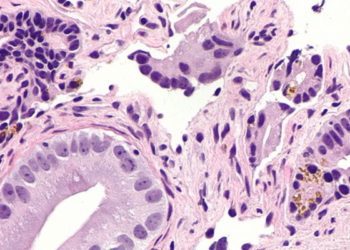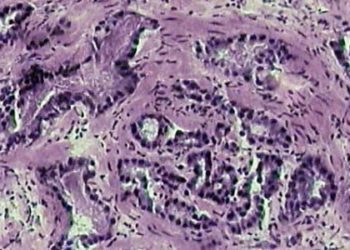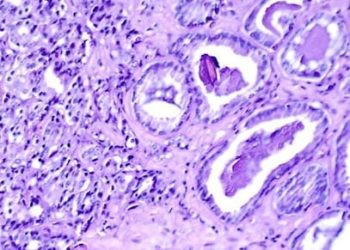Clinician factors associated with increased PSA screening amongst veterans with limited life expectancy
1. In this cross-sectional study of veteran men across the USA, the rate of prostate-specific antigen (PSA) screening amongst men with limited life expectancy depended on clinician factors, with higher rates of screening by clinicians who were older, male, no longer in training, or in urology specialty.
2. Although guidelines specifically discourage PSA screening tests amongst men with limited life expectancy, this cross-sectional study shows that this remains a habitual practice in certain settings.
Evidence Rating Level: 3 (Average)
Study Rundown: Prostate-specific antigen (PSA) may be useful in monitoring patients for recurrence of prostate cancer. However, the evidence for it’s value as a screening test in the male population is modest. This potential value is even more questionable amongst elderly males with limited life expectancy. Despite this, PSA screening is still frequent in this patient population. This cross-sectional study aimed to determine which clinician characteristics were associated with PSA screening rates in older veterans with limited life expectancy.
Overall, men with limited life expectancy received less PSA-based screening for prostate cancer than younger men. Higher screening rates in patients with limited life expectancy was statistically associated with having a clinician who was an older male who was no longer in training. Rates of screening were also significantly higher amongst urologists as compared to geriatricians. Results from this study highlighted the specific areas in which rates of testing can be improved. The strength of the study was the use of a nationwide cohort, though the population was more homogenous than the general American population. The study was conducted in 2011 and does not reflect practice changes that may have occurred since the publication of the 2012 US Preventive Services Task Force guidelines, which do not recommend PSA screening.
Click to read the study, published today JAMA Internal Medicine
Relevant Reading: USPSTF Prostate cancer screening guidelines 2012
In-Depth [cross-sectional study]: This large, national cross-sectional study used the Veteran’s Affairs (VA) health care system database in 2011 to identify men 65 years or older with at least one VA outpatient visit in 2010 or 2011. Men who received and did not receive a PSA screening test during 2011 were linked to their associated clinician. From this cohort, men with a history of prostate cancer or with recent symptoms suggestive of prostate cancer were excluded. The predictor variables analyzed focused on the characteristics of the ordering clinicians. Particularly, degree-training level, specialty, age and sex. Projected life expectancy of the patients was determined by categorization by age and Charlson Comorbidity Index. Limited life expectancy was defined as males aged 85 years or older with a Charlson score of 1 or more, or 65 years or older with a Charlson score of 4 or more.
The cohort consisted of 826,286 men. Overall, men with limited life expectancy received less PSA screening than those with better-projected life expectancies (39% vs. 77%; p < 0.001). However clinician factors that were associated with increased PSA screening in those with limited life expectancy included degree of training (27% among physician-trainees vs 42% among attending physicians, p < 0.001), specialty (22% among geriatricians vs. 82% among urologists, p < 0.001), age (29% among clinicians less than 35 years-old vs. 41% among clinicians 56 years or older, p < 0.001), and sex (38% among female clinicians older than 55 years vs. 43% among male clinicians older than 55 years, p < 0.001).
Image: PD
©2016 2 Minute Medicine, Inc. All rights reserved. No works may be reproduced without expressed written consent from 2 Minute Medicine, Inc. Inquire about licensing here. No article should be construed as medical advice and is not intended as such by the authors or by 2 Minute Medicine, Inc.







